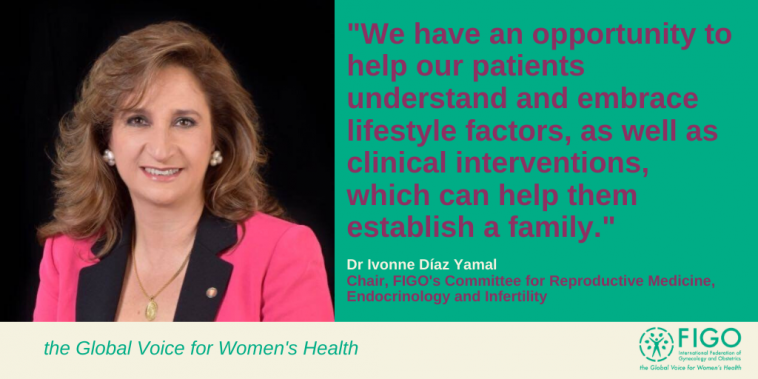Infertility and lifestyle factors
Obesity is a worldwide problem, with many health effects that overlap with reproduction.
Now we have more evidence about how obesity can affect ovulation and the chances of pregnancy, we can use the information to improve fertility management and assisted reproduction.

High body mass index (BMI) and the impact on fertility
Some small studies have suggested that weight loss of about 5 percent before fertility interventions can significantly improve reproductive outcomes. In women with polycystic ovary syndrome, several studies have shown the benefit of lifestyle intervention, although there is less evidence from randomised controlled trials for patients who are overweight and undergoing medical fertility treatment.
In larger meta-analyses, findings have indicated that especially high BMIs are associated with significantly lower rates of ongoing pregnancies, and with greater risk of miscarriage.
The quality of a woman’s egg can be affected by exposure to disturbances in her metabolism, including high levels of insulin, glucose, and lipids. Studies have shown a much higher lipid level in oocytes (a cell in an ovary which can form an ovum) from female rodents given a high-fat diet, interfering with cell function, increased death of cells (apoptosis), and lower fertilisation.
Some of these effects can be eliminated through change of diet, exercise, or effective drugs.
Lifestyle factors
As chair of FIGO’s Committee for Reproductive Medicine, Endocrinology and Infertility, I urge that weight loss should be promoted as an initial treatment option for women who are obese and struggling with infertility.
Although evidence is presently lacking for the full effect of lifestyle modification on IVF outcomes, we know that weight loss improves menstrual regularity, ovulation, and fertility. A weight loss of just 3 to 5 percent can restore ovulation and natural pregnancy.
Lifestyle modifications are the best way to achieve and sustain weight loss. These include sensible dieting, regular exercise, cognitive behaviour therapy, and a supportive group environment.
When a woman is able to improve her overall state of health by treating conditions that overlap with reproduction, including diabetes mellitus and hypertension, she increases the likelihood of a healthy pregnancy and positive postpartum experience.
As OBGYNs, we have an opportunity to help our patients understand and embrace lifestyle factors, as well as clinical interventions, which can help them establish a family when their chosen circumstances allow.